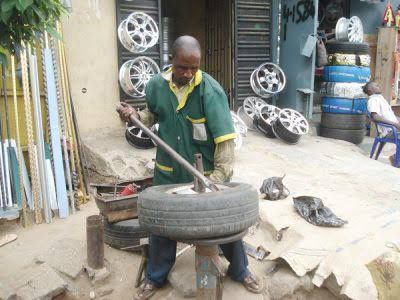Nigerian artisans have continued to groan over lack of apprentices, who assist them in carrying out their businesses.
Amongst the artisans who lamented to BizWatch Nigeria was Lukmon Adeyemi, a bricklayer based in the Odeda area of Ogun State, stated that he had lost all his apprentices to cyber fraud.
“I used to have about five apprentices, whose parents brought to me on a keen request to teach, mentor, and give them the practical exposure and experience to the bricklaying job I do. But it would surprise you to know that none of those boys are still with me. They’ve all left to do yahoo (sic),” he stated.
Like the bricklayer, a furniture worker who doesn’t want to be mentioned in this report, said “nobody wants to work anymore, but wants to eat regardless. What they are now doing is yahoo (sic) because they have no patience.
“We now see a young boy of 25-year-old eyeing to have his own car and house. So, whoever gets hurt in their desperate bid to make money, doesn’t matter. As a matter of fact, some of these people believe that our job is too dirty for them to do.”
Lack of artisans — death of SMEs
While Youth’s compulsive need to get rich quick has taken a toll on the level of apprenticeship, Small and Medium Enterprises (SMEs) in Nigeria are at the receiving end of it.
Sharing his sentiment on the matter, Olalekan Fakoyejo, a financial literacy journalist, posited that the low rate of young people showing interest in acquiring skills in crafts and vocations, is dragging the growth of many businesses.
His words: “As it is in the country, you can easily be frustrated as a skilled worker. One man can’t entirely handle the job. For instance, an automobile technician can easily and quickly fix a faulty vehicle with the help of at least one apprentice, when compared to one who doesn’t have any apprentice.
“While an experienced automobile technician is working to get the vehicle work, he can ask his apprentice to test drive if he needs to, or even send him an errand to a vehicle spare parts shop to purchase needed materials.
“This, by default, has given room for division of labour, such that customers will be satisfied with promptness and a rise in service demands will become inevitable.”
Echoing Fakoyejo’s explanation, a dry cleaner who pleaded anonymity, told this writer that she almost closed her shop as she struggled to hire a presswala.













